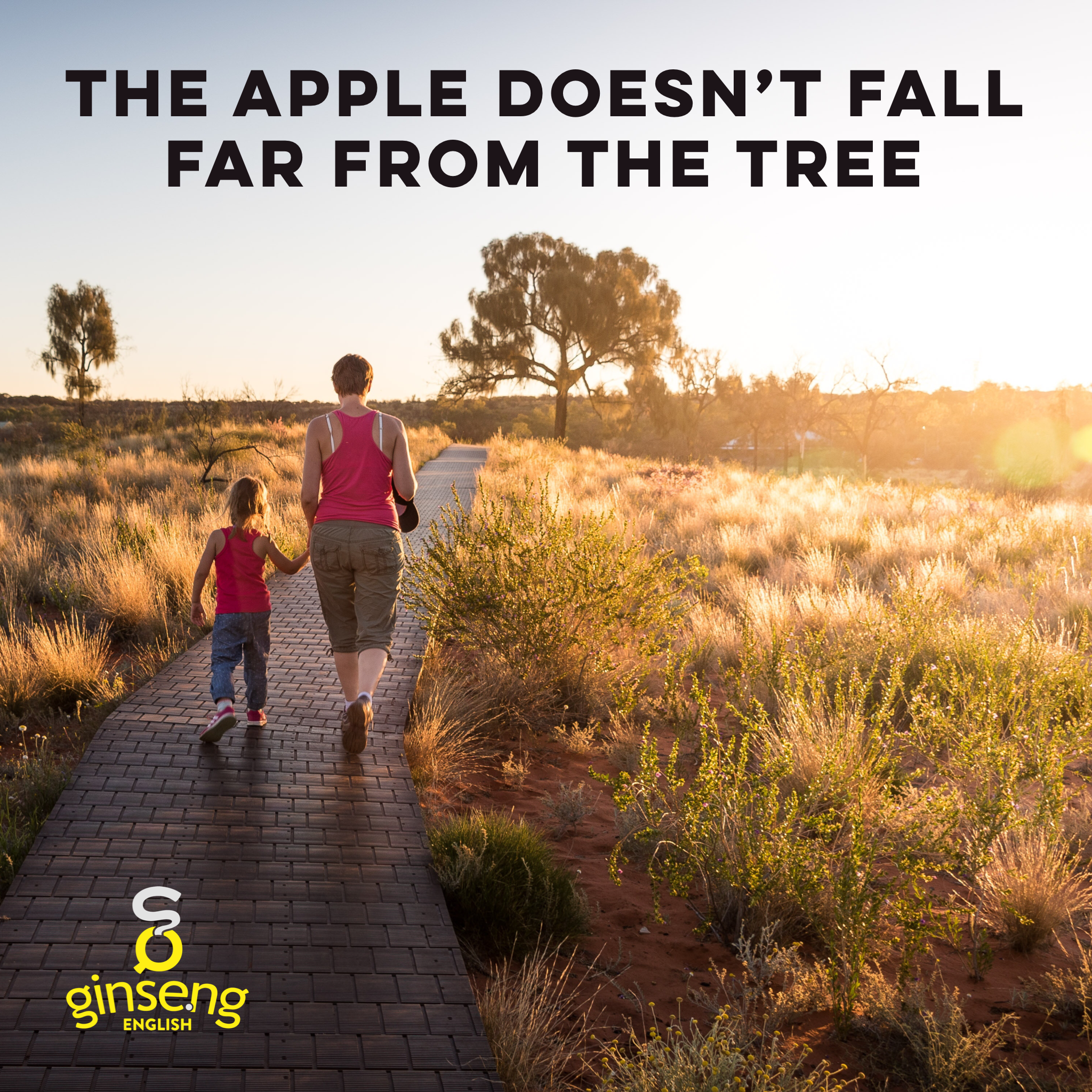English Idioms about competition
They say some friendly competition never hurt anyone. In fact, sometimes, people even thrive on a little competition! If you’re one of these people, these idioms about competition might come in handy…
Read on, or should we say, game on?!
see eye to eye
Today's first Ginseng English idiom is "see eye to eye." Do you have any friends, coworkers, or family members who you really understand and agree with? In English, you can express this with the idiom see eye to eye. It's also very common in the negative. Check out the examples below!
Examples
My wife and I are a great match, we really see eye to eye.
Jerry and his boss see eye to eye so they work well together.
My parents and I don't see eye to eye about a lot of things, so we fight a lot.
The relationship didn't work because we didn't see eye to eye on some important issues.
No Pain No Gain
This idiom comes from some people's belief that you must suffer to succeed, that nothing good comes without hard work. Do you agree with this theory?
Training for a marathon was the hardest thing I ever did, but as they say, no pain, no gain! Crossing the finish line made all the pain and suffering worth it!
Max's parents told him, no pain, no gain, and made him study English every day. It was hard but when he realized he could speak English with his American friends, he was very happy!
Julie's goal was to be able to do 50 push-ups, Every day her arms hurt so much, but she knew that this was the only way to achieve her goal and she told herself, no pain, no gain!
Ball in your court
The ball is in your court is a simple one. It actually comes from tennis, though it could apply to several different sports. We say the ball is in your court to tell someone that it is their turn to take action, that it is their responsibility to take the next step.
I sent them an two emails last week, so now the ball's in their court.
Well, I apologized and she said nothing, so now the ball is in her court.
They made me a job offer. I'm still thinking about it. I guess the ball is in my court to make a counter-offer.
Toot Your Own Horn
Tooting your own horn is another way to say brag or boast.
A horn is a type of musical instrument that includes trumpets, trombones, and French horns. Horn is also the word for the loud noise your car can make to avoid an accident. The sound that a horn makes is toot. When you toot the horn of a car, it draws attention to your car 📢 🎺. Therefore, if someone toots their own horn, they are making noise to draw attention to themselves.
This is an funny phrase that people use when they know they are about to brag about a personal achievement or skill, but don't want to sound too annoying or conceited while doing so.
Examples
I normally wouldn't brag about my cooking because I'm not very good at it, but I'm going to toot my own horn because this cake I just made is so delicious!
Not to toot my own horn, but I did really well in the interview today and, fingers crossed, I think I'll get the job! 🤞🏼
Jack didn't want to toot his own horn but his boss wasn't in the meeting to see how well his presentation went. Jack knew how hard he worked and that he deserved recognition for it, so he wrote his boss an e-mail to tell her about it. His boss was glad to hear it and was very proud of Jack!
Steal Someone’s Thunder
This next idiom is to steal [someone's] thunder. We use this phrase when one person does something that takes (the stealing) positive attention (the thunder) away from someone who should be getting that positive attention. For example, if it's Alexa's birthday, she should get lots of attention. If Jade announces that she is pregnant at Alexa's birthday, and steals that attention, she steals Alexa's thunder.
Jade really stole Alexa's thunder when she announced that she's pregnant at Alexa's birthday party.
I really wanted to tell everyone about my engagement, but I didn't want to steal Joe's thunder.
My whole childhood, my older sister was always stealing my thunder.
In the Same Boat
Despite our theme of competition today, the idiom, all in the same boat, can sometimes mean the opposite We use this idiom to mean that we are all in the same situation, or sharing the same problem together. In this situation, working together and teamwork is the best option because if the boat sinks, you're all going down together!
Examples
Our boss asked us to work on an extra project. None of us wanted to work over the weekend, and since we were all in the same boat, we decided to stay late and finish the project!
When my cousin asked to borrow $10, I refused because we're in the same boat and I don't have any money either!
Vera and Peter both didn't understand the math class, so since they were in the same boat, they went together to ask the teacher for extra help.
Singing a different tune
To sing a different tune is to change your opinion or attitude about something.
Andy was careless and spent all his retirement money at age 40. I bet once he's 70 and has no retirement fund, he'll be singing a different tune!
Brian claimed that he was the one that broke up with Rebecca, but when she tells her side of the story, she sings a different tune.
Alice wanted a big family, but when she realized how expensive children are, she starting singing a different tune.
Pardon my french
Today's idiom is pardon my French. We say "Pardon my French" as a funny way to apologize for cursing or using profanity. It is also common to say excuse my French.
Back in the 1800s, the phrase was used when you actually used a French word or phrase in your speaking. You might say, "The film had a certain, je ne sais quoi." Then you'd say "Pardon my French," because it was a little rude to speak French in front of people who might not understand. Eventually French developed some negative connotations in English—sorry French speakers!—and the phrase came to be used with swear words.
Shit, I hit my head—Oops, pardon my French!
When John accidentally said a bad word, his wife told him, "John, don't curse in front of the children!" He replied, "Oh, I'm sorry, pardon my French!"
Excuse my French, but this movie sucks!
A famous example of pardon my French from Ferris Bueller's Day Off.
A Dime a Dozen
This last idiom is a dime a dozen, which means very common.
As you may know, a dozen means 12. We use this word frequently to talk about buying things:
a dozen eggs:🥚🥚🥚🥚🥚🥚🥚🥚🥚🥚🥚🥚
a dozen donuts: 🍩🍩🍩🍩🍩🍩🍩🍩🍩🍩🍩🍩
a dozen roses: 🌹🌹🌹🌹🌹🌹🌹🌹🌹🌹🌹🌹
And a dime is a coin worth $0.10 in America.
So, if something costs a dime for a dozen, it's really cheap, so it must be really common. This is a metaphor, though, so it isn't literal.
Beach towels are a dime a dozen in Florida.
Many people think old baseball cards are valuable, but they're a dime a dozen.
Cell phones used to be for rich people only, but now they're a dime a dozen.
Other free English resources:








